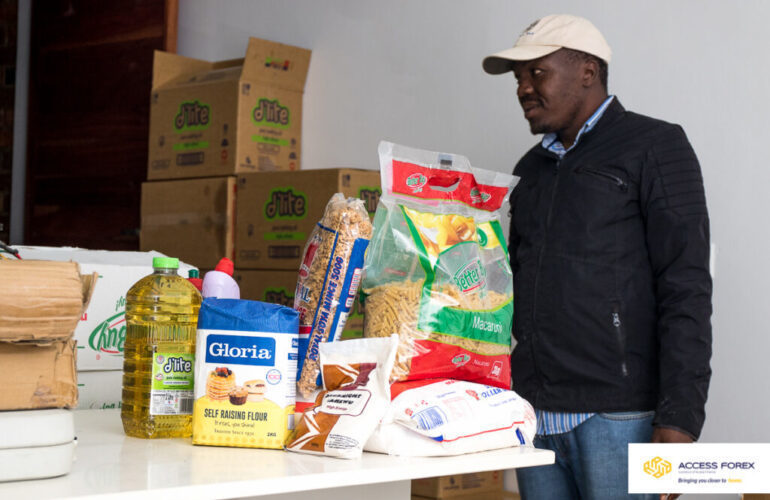Access Forex and Caritas Zimbabwe Join Hands to Feed a Million
Access Forex, an organisation providing remittance services for Zimbabweans in the UK and South Africa, has partnered with Caritas Zimbabwe as it rolls out its Feed a Million food aid initiative.
Founded in 1972 as the Commission for Social Services and Development (C.S.S.D), the agency is now known as Caritas Zimbabwe to identify itself with other Catholic charitable agencies throughout the whole world under Caritas Internationalis (CI) network of 162 Catholic relief aid, development and social service organisations working to build a better world, especially for the poor and oppressed. It operates under the Zimbabwe Catholic Bishops Conference (ZCBC.)

The initiative comes at a time of great need, as a slowing economy, COVID-19 and the subsequent lockdown are impacting the country. Access Forex has committed a seed of USD200,000 towards a target fund of USD 1 million, and has created hampers containing UN-recommended food staples as well as sanitary products. Donations will begin in Harare, Bulawayo and Victoria Falls before rolling out in the rest of Zimbabwe.
Feed a Million donations will take place in line with government directives pertaining to COVID-19. Social distancing will be strictly adhered to in line with World Health Organisation, and a maximum of 50 people will be served at a time. For the additional safety of recipients, a medical officer will be present at each distribution site.
Dr George Chirwa, the Executive Director for Access Forex shared that Access Forex is making good progress towards its goal to #FeedAMillion. “Our initial distribution in Mbare and Epworth went extremely well and over the course of next week we will be in Bulawayo Mpopoma and Makokoba then we move to Chidobe in Victoria Falls.” he stated.
Marius Zibgwi, National Co-ordinator of Caritas Zimbabwe, also shared his vision for the impact for the Feed a Million initiative. “Access Forex is the first corporate to partner with us in this way. Our work is aiding those who are suffering from poverty and hunger, and this initiative will help us reach more people across the country. We hope that other corporates will also join in the effort to assist the most marginalised members of our communities.” he said.
Vulnerable people will be assisted through the Feed a Million Challenge, including child-headed homes, orphans and the elderly. As part of the initial donation, 2 500 individuals will receive hampers. Access Forex expects the Feed a Million initiative to grow into the future and beyond the COVID-19 pandemic. The organisation believes strong partnerships by local businesses will be critical for solving local problems. Through such times of national crisis, results are achieved when we pull together. Through collaboration, we can Feed a Million.






